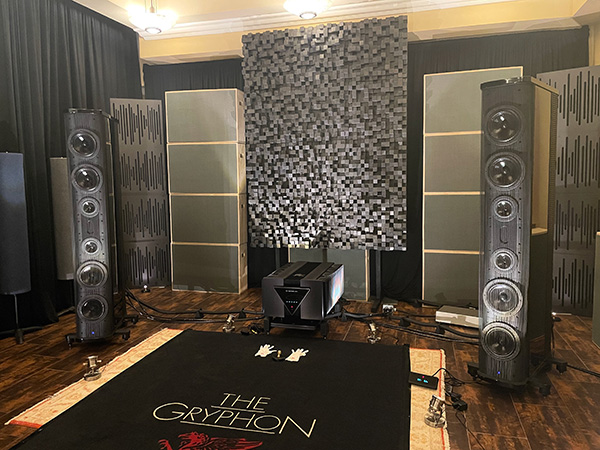Right, so some progress with the snail type diffuser? Absorber? Whatever it is it will be the house of the tiny seas w12cy006. This dedicated midrange works from 1k up to 4k. And needs 6 liter.
I already talked to many empty boxes to determin echo. This **** works, even without damping very little echo, very weird... but really seems to do what it supposed to do. Overkill? Yes!! But also lots of fun 😀




I already talked to many empty boxes to determin echo. This **** works, even without damping very little echo, very weird... but really seems to do what it supposed to do. Overkill? Yes!! But also lots of fun 😀
The sides are not yet glued, I thought of maybe making ridges or ribs of some sorts of woods on the sides. Or maybe drill holes...
So I have found something new on the German renovation site. A panel made out of tiny (mud?)pearls, supposed to be mounted in underground rooms to absorb moisture. All I saw is a new idea for diffuser! 😀 so I got one and up it went into the CNO GRANDE loudspeaker.
For those who see this post for the first time, the idea in general to replace almost all acoustics damping with diffusers and hopefully get some more dynamics and reduce rear wave energy.
I am concentrating this effort at the 1kz and above.





For those who see this post for the first time, the idea in general to replace almost all acoustics damping with diffusers and hopefully get some more dynamics and reduce rear wave energy.
I am concentrating this effort at the 1kz and above.
I've been lurking in speaker cabinet threads for a while. One thing that comes to mind is using a quadratic residue diffuser on the back wall. This looks like a bunch of random length rectangles extending from the back, and I imagine it would have the effect of spreading out the frequency(ies) of the back wall reflection resonance, making it less prominent and less audible. This combined with stuffing with absorption material might make for a 'best' least-resonant acoustical space behind the driver.
Have to say, the Nautilus shape+diffuser+wool works really really well, just tried to hear some echo, it is almost completely gone. I don't remember any other cabinet I made that was so clean. Too bad I cannot upload a small Video demonstration
You might want to target those to quarter wavelength of depth modes, and inlets to the pressure nodes of the modes. Otherwise the channels likely make resonances on their own. Perhaps this is fine as well, if you want to statistically lot of resonances there or something and work equally nicely🙂
Last edited:
First mode: half wavelength: length of channel would be box depth / 2, inlet at either front or back boundary, preferably back I 'd say.
Second mode: full wavelength, pressure nodes at end of the box and also middle of the box, so inlet at the end of the box, or half way of the box. length is box depth / 4.
Third, 1.5wl, 4 pressurenodes now so inlet either at the end again, or at 1/3 way of the box depth. length depth / 6, and so on.
Perhaps just one or two channels was already enough fine, assuming damping material works for the higher modes just fine.
Second mode: full wavelength, pressure nodes at end of the box and also middle of the box, so inlet at the end of the box, or half way of the box. length is box depth / 4.
Third, 1.5wl, 4 pressurenodes now so inlet either at the end again, or at 1/3 way of the box depth. length depth / 6, and so on.
Perhaps just one or two channels was already enough fine, assuming damping material works for the higher modes just fine.
Running a computer simulation would be interesting, a sound wave from the cone dispersing down the different paths and bouncing back again. Perhaps at the long audio wavelengths, only the longer pathways would be of any use. A wave tank would be the height of my technical ability - or making one and sticking my ear in it to see if it sounds like a seashell.
I would love to have such simulation program. Your sketch reminds me very much of how a gun silencer looks likeRunning a computer simulation would be interesting
Here's another idea,
A variation on nHegeman’s LF meta-material type diffusor/resonator,
dave
- Home
- Loudspeakers
- Multi-Way
- Loudspeaker Chaos theory- inside diffuser
